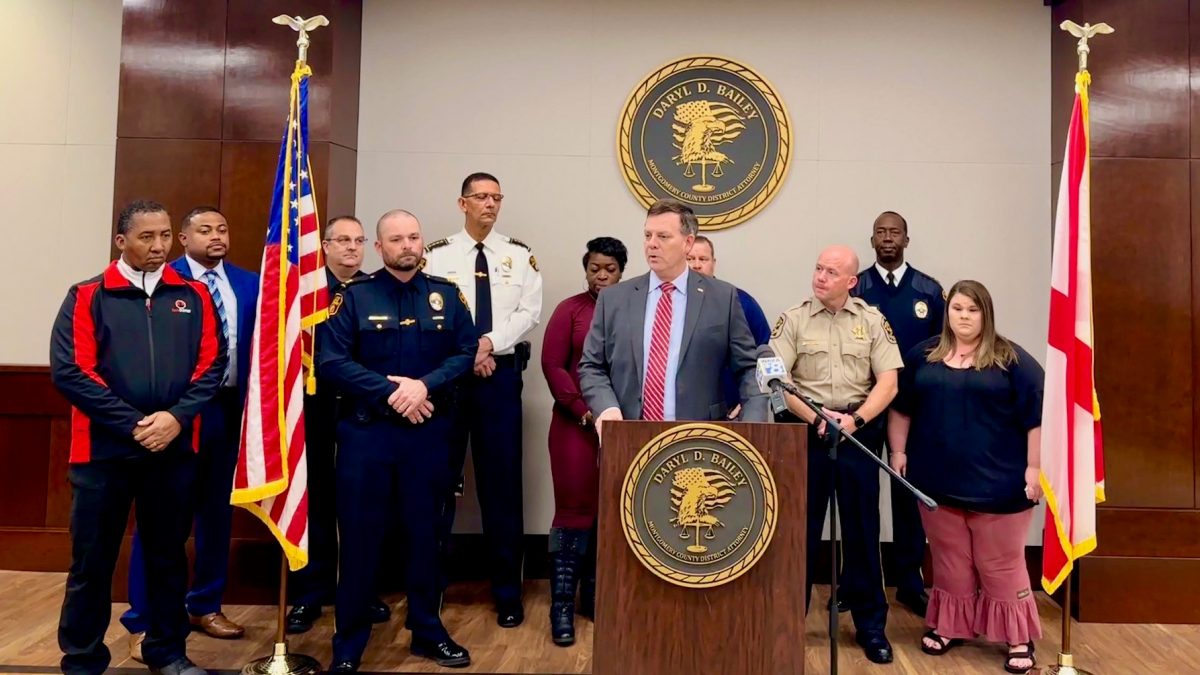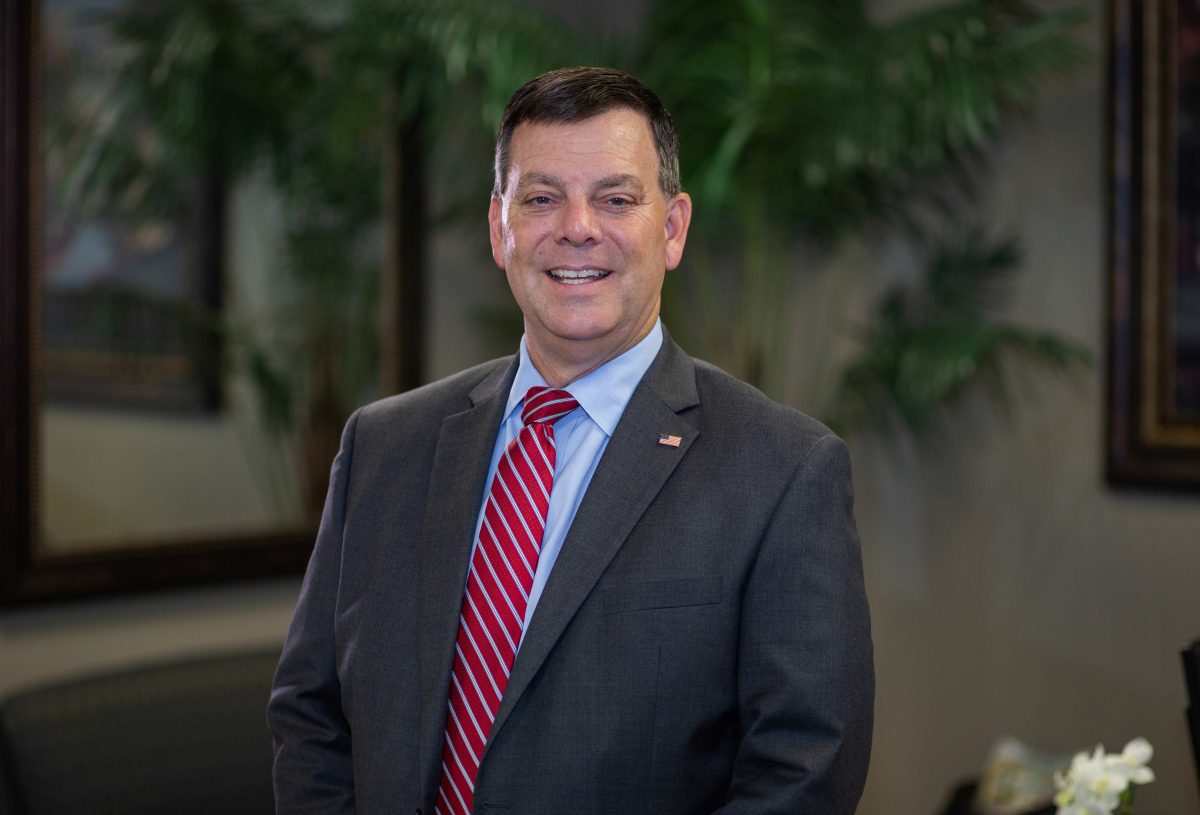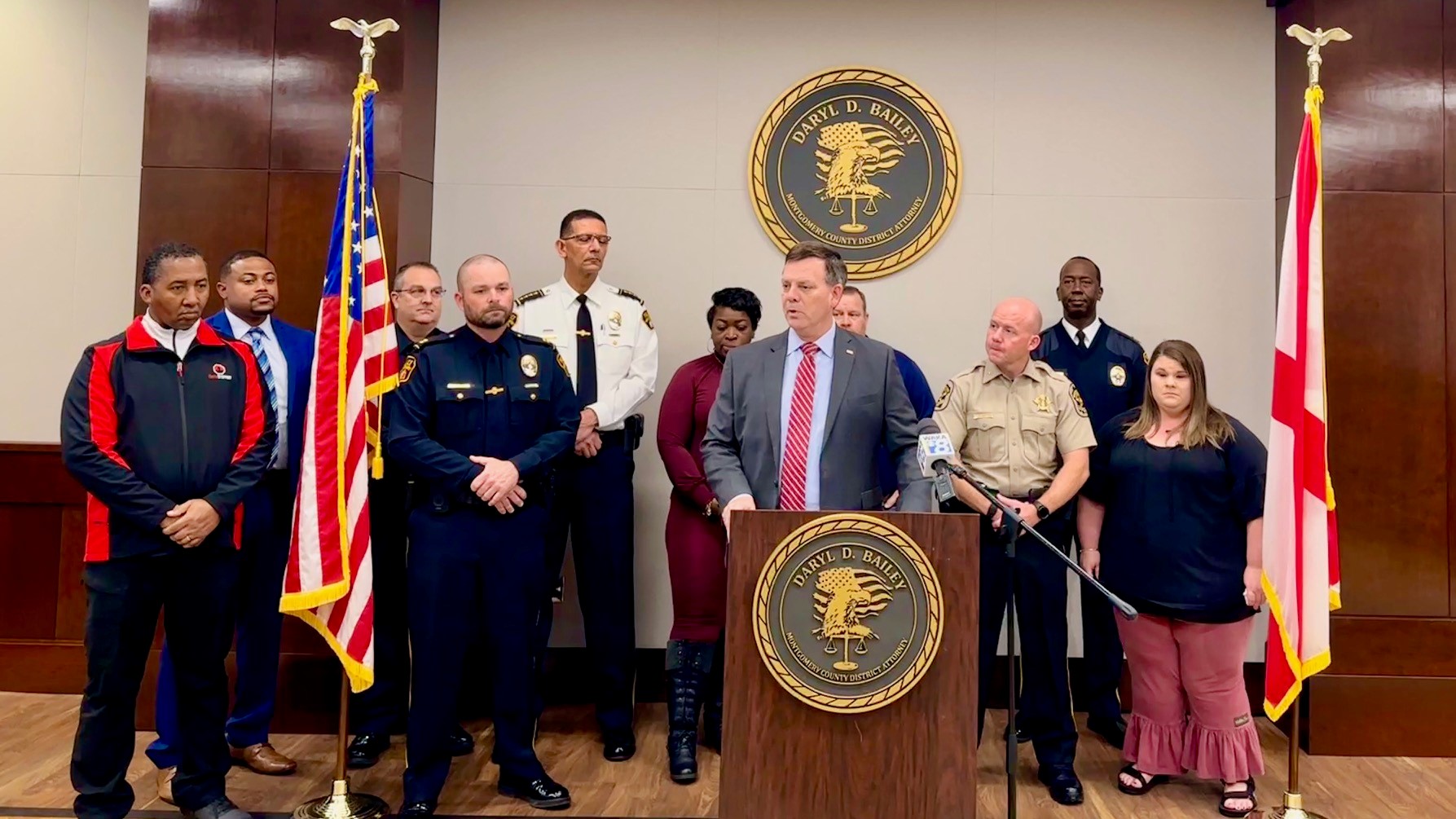
By Charlotte Morris
Daryl Bailey dreamed of becoming a district attorney (DA) ever since he was in the first-grade when his teacher randomly selected him to play the role of the DA in a school play. “That play and that teacher changed my life forever,” Bailey said. He was tasked with prosecuting sugar for causing a cavity in a boy’s tooth – and won. “I thought, ‘Wow! That was fun. I really liked that.’”
Throughout his educational years, his desire to become a DA never changed, but an experience in seventh grade almost changed his mind.
“I remember a prosecutor came to speak to our class,” Bailey said. “It was right after I had watched a movie where a prosecutor puts the bad guy away and when the bad guy gets out he hunts down the prosecutor and his family and tried to kill them. As a seventh grader, I was really worried about that.”
After sharing those fears with the guest speaker, he gave Bailey great advice that he has passed on to his staff over the years. “He said, ‘Son, if you do your job honestly and treat everyone in the courtroom with respect – no matter where they came from or what they did – you would never have an issue.’”
After high school, Bailey attended Lipscomb University before earning an undergraduate degree in communications and political science from the University of Alabama in Huntsville, his hometown.
When picking a law school, Bailey said he knew he wanted to attend a Christian law school and was already familiar with Faulkner from his involvement with the Lads to Leaders program as a youth and enrolled at Thomas Goode Jones School of Law.
“The law school was very small back then, but in my third year the current building was built, and I remember helping move in furniture and worked in the library,” he said.

“One faculty member who stood out was Shirley Howell,” Bailey recalled. “She was a phenomenal teacher, but everyone was scared of her. She was intimidating, but under that exterior she was the sweetest person on earth. She was probably my biggest cheerleader throughout my career.”
While at Jones he served as Student Bar Association President and began his career in the Montgomery County DA’s office as a volunteer. “They had never had a volunteer before, but they said I could take out the trash and clean up the library, things like that, so that’s what I did.”
“I fell in love with the job, and that office,” Bailey said. “So once I got out of law school, I decided to stay, and twenty years later, I became the head of that office.”
Bailey went from being a volunteer to trying 23 jury trials in his third year as a law student. And they weren’t easy cases he said, “They were murder, rape, domestic violence… serious cases.”
Thurston Reynolds, a law professor who has taught at Jones since 1989 commented, “I did not realize he tried 23 cases to a jury as a third-year student—that is insane. Nobody does that.” He is not surprised however, by Bailey’s successes. “Everything I remember hearing about him from lawyers or litigants over the decades has been good,” Reynolds said. “That is unusual for any district attorney who has been in that job as long as he has. There are opportunities to make enemies every day they go into court.”
Bailey said that bail reform was the number one thing he wanted to address when he became DA. When the Alabama legislature approved the bill that would become Aniah’s law, the DA’s association worked hard to get that passed. “We were happy that they were finally paying attention to bail reform.”
As a DA, another main focus was to be a protector for those who couldn’t protect themselves.
“You don’t realize until you start doing it, that the practice of law, especially as a prosecutor, is dealing with real people, real lives that have been impacted,” he said. “They are depending on you to get justice and to make sure everyone knows what their family member meant. You’re the only one acting as their voice, standing up for them… it’s a lot of weight and a lot of pressure.”
One of Bailey’s most widely known cases involved a shooting at a liquor store in Montgomery in 2002. John Allen Muhammad and Lee Boyd Malvo were involved in a multi-state murder spree that ended in the Washington, D.C., area that the media referred to as the DC sniper attacks (or Beltway sniper attacks). Evidence found at the crime scene in Montgomery eventually tied the killing to the Beltway attacks and allowed authorities to identify Muhammad and Malvo as suspects.
“I actually went to Virginia to help them try those cases,” Bailey said. “It was a highlight of my career.”
In addition to finding justice for victims, Bailey has also made a positive impact on those he prosecuted.
“There’s a guy I put in prison for life that calls me once a week,” Bailey said. “He wrote me right after he went to prison to ask me what he could do to make himself a better person. I told him about following God’s word and taking advantage of all the things they offer in prison to better yourself.”
Besides his family, Bailey says being DA was the highlight of his life. After serving in the DA’s office for almost 30 years, he was eligible for retirement. He said he had been approached about running for attorney general, governor, mayor among other offices, but none of those jobs interested him.
Although Bailey had a lot going for him politically, the one job he was interested in outside of being a prosecutor was working with college students. Toward the end of his career in the DA’s office, he tried to recruit attorneys to come to Alabama.
“I’ve hired students from all across the country, including ivy league schools, and the students from Faulkner were by far the best students I had as prosecutors,” Bailey said. “I really enjoyed recruiting law students and mentoring them and was excited about an opportunity to help alleviate the problem of not enough lawyers and not enough prosecutors. So, working at the law school became an obvious choice.”
“Jones Law School has turned from a part-time night school to full-time program that produces excellent lawyers that go all across the country to practice law.”
As Director of Admissions and Outreach for Faulkner Law, Bailey’s main job is recruiting students to come to law school and working with alumni to become more involved. “I told Dean Campbell and President Henry I wanted to do this or work on a golf course, but this has air conditioning!”

